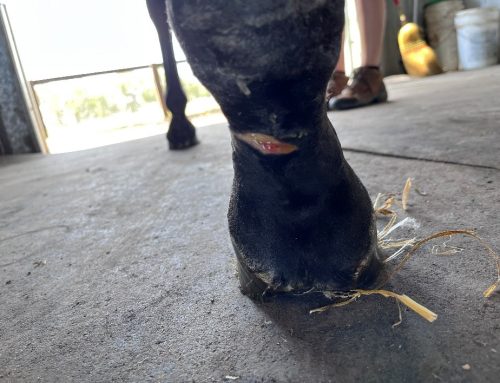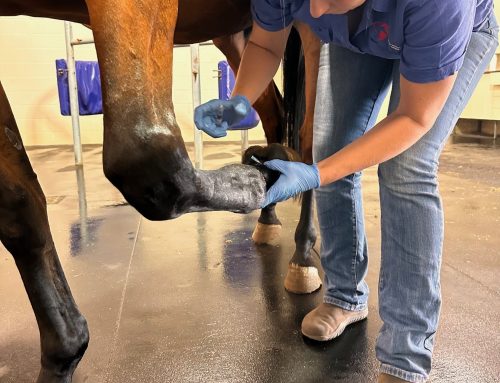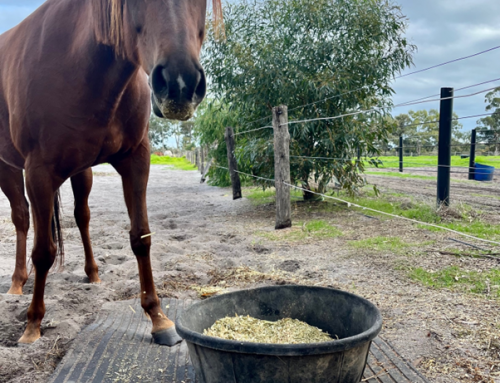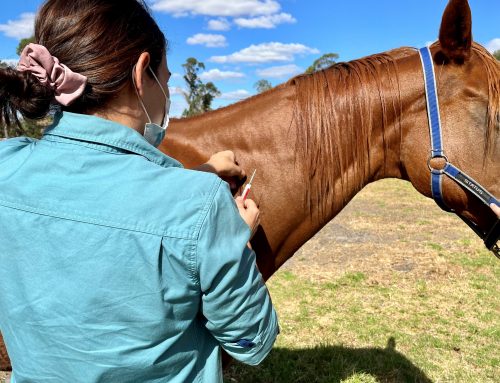At Murray Veterinary services we recommend a strategic approach to the worming of horses, ponies and donkeys instead of the traditional approach of worming horses at set intervals throughout the year.
What is strategic Worming?
Strategic worming uses faecal worm egg counts to determine whether your horse needs worming or not. Based on the results of a faecal worm egg count one of our Veterinarians can then advise you on when how and with what you need to worm your horse with.
Traditional methods of worming have resulted in an over use of wormers. This has then resulted in an increase of resistance to worms to the worming drugs and an unnecessary or incorrect use of worming medication worming in horses.
Advantages of Strategic Worming
- Reduces risk of worm resistance developing
- Is better for your horse due to the decrease in wormer usage
- Is beneficial for the environment – Ivomectin kills dung beetles
- SAVES YOU MONEY through not using wormers unnecessarily
Why should you change to Strategic Worming?
Worm infection in horses can result in disease such as weight loss, diarrhoea, poor performance, colic and tragically even death
Studies have shown that most horses are wormed to frequently and with inappropriate products
The tradition approach to worming at predetermined intervals is no longer considered acceptable practice and has resulted in increased resistance of worms to wormers
The number of worming products on the market can at times be overwhelming and the advice given with these wormers can be confusing. Strategic worming allows a individually tailored worming program based on the horse rather than the wormer.
What is worm resistance
Worm resistance is when a high proportion of parasites located on a property are no longer effectively controlled and killed by a wormer or anthelmintic
The three main causes of worm resistance are
- Using wormers to frequently
- This is due to the wormer killing the “weaker” worms before they reach maturity and can breed resulting in the stronger worms going on to breed and replicating. This causes and overgrowth of the stronger more resistant worms in the environment
- Under dosing
- If the weight of the horse is underestimated and the dose of the wormer used is too low then it helps the stronger more resistant worms to survive by again only killing off the weaker worms
- Using the same type of wormer too frequently
- Again this causes the stronger worms to be selected for survival and increase in population by killing the weaker worms
Once Worm resistance has occurred in a Horse population on a property it Can Not be reversed!
How do I do strategic worming?
Strategic worming can easily be incorporated into your horse care routine. It is a simple process of having a faecal worm egg count performed on your horse twice a year preferably spring and early autumn, follow worming guidelines prescribed by the veterinarian based on your horses faecal worm egg count and age and location and then following good worm management steps.
At Murray Veterinary Services we have put together a package to make strategic worming simple for you. Once you sign up we will send you a kit with everything you need to collect and return by prepaid post your manure samples to us. Once the faecal egg count has been done, we will then email you a report with specific worming advice for your horse. We will also send you reminders the next time your faecal worm egg count is due.
Property Worm Management Steps
Undertaking worm management on you property in conjunction with Strategic worming will help reduce the worm burden in your horses and therefore decrease the costs associated with use of wormers
- Avoid overstocking or overgrazing of pastures
- Muck out stables regularly especially when they contain foals or weanlings
- Remove faeces from pastures as frequently as possible preferably twice weekly
- Avoid moving a horse to clean pastures within 2 weeks of using a wormer as this results in resistant worms moving with the horse and weaker worms being left behind
- Avoid spreading horse manure on paddocks grazed by horses
- Rotate grazing of paddocks with sheep or cattle and if this is not possible rest pastures regularly.
Worming in horses younger than 2 years
Horses under the age of 2 years require worming more frequently than adult horses as they are more susceptible to infection with worms. Please feel free to discuss with one of our veterinarians a programme that can be tailored to your specific circumstances.






